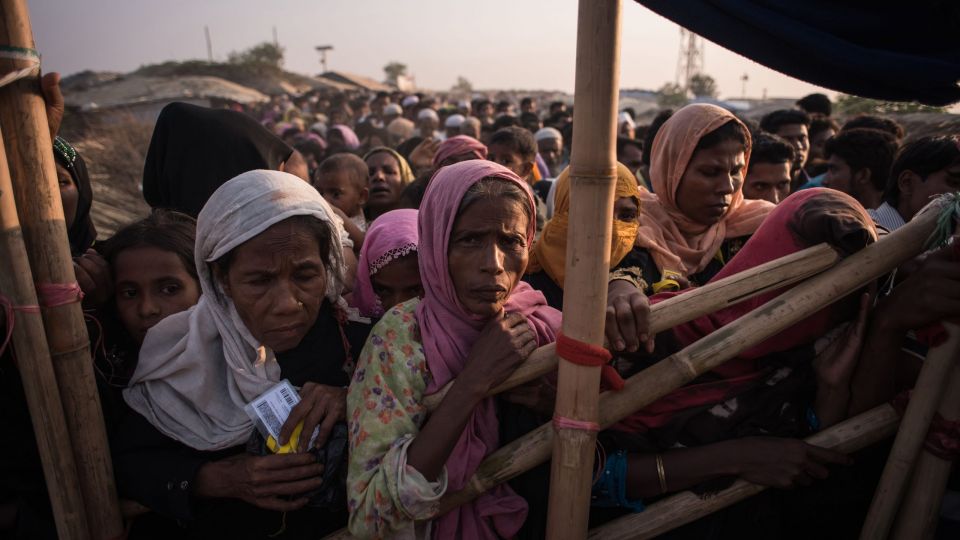August 26, 2019
Bangladesh on Rohingyas’ unwillingness to return, asks Myanmar to fulfil its obligations, commitment.
Myanmar’s failure to fulfil its obligations is the reason why the Rohingya did not volunteer to return to Rakhine, the Bangladesh foreign ministry yesterday said.
It said the responsibility to encourage Rohingyas to go back lies entirely with Myanmar, under the deal signed by the two countries.
“It is Myanmar’s responsibility to create a conducive environment in Rakhine through decisive actions and to reduce the trust-deficit of Rohingyas through appropriate measures, including dissemination of authentic information on the ground reality,” the ministry said in a statement yesterday.
The statement comes three days after the second attempt to repatriate the Rohingya failed. Myanmar blamed Bangladesh for the failure.
“Unsubstantiated claims on the part of the government of Myanmar are not going to contribute to repatriation,” the Bangladesh foreign ministry said.
The Rohingya want to return to Rakhine but they expressed utter dismay that Myanmar could not report any progress concerning citizenship, rights, and security for their return to northern Rakhine, it said.
Myanmar needs to take decisive actions and demonstrate political will to address the core concerns of the Rohingya. Bangladesh asked Myanmar to adhere to the spirit and provisions of the deal on repatriation and the recommendations of the Advisory Commission on Rakhine State.
It should seriously consider engaging the international community for creating an environment conducive to their return as well as for monitoring the repatriation and reintegration process, the statement said.
Two days ago, Myanmar blamed Bangladesh for the second failed attempt to repatriate the Rohingya.
It had said that Bangladesh failed to distribute the correct paperwork, the so-called “verification forms” to potential returnees — a controversial form of ID that falls short of granting Rohingya citizenship, reports Reuters.
Bangladesh, in its first-ever response to Myanmar’s blames, yesterday said that the accusation was “baseless, ill-motivated and totally unacceptable”.
The foreign ministry said Bangladesh ensured all necessary arrangements, including security and logistics for the Rohingya to return to Rakhine. All available information and the fact-sheets provided by Myanmar were shared with the families concerned.
Moreover, adequate measures including security arrangements were ensured so that the Rohingya could freely express their intent.
“Unfortunately, none of the families interviewed agreed to return in the present circumstances, as they consider the security situation and overall environment in Rakhine not yet conducive to their return.”
It said almost all the families interviewed expressed their deep concern over the security situation in Rakhine. Overwhelming majority of the families underscored the lack of progress in addressing justice- and rights-related issues, including citizenship, freedom of movement, and land-use rights.
All families interviewed have reaffirmed their desire to return, once their concerns were reasonably addressed by Myanmar, the statement said.
Representatives of the Rohingya refugees, during an interaction with a high-level Myanmar delegation in Cox’s Bazar on July 27-28 this year, called for international civilian monitors’ presence in northern Rakhine to guarantee security and to monitor the repatriation and reintegration process.
The Myanmar delegation also agreed to continue frequent dialogues with the Rohingya to find mutually acceptable solutions to core issues, including granting fundamental rights and citizenship.
Bangladesh and Myanmar signed a repatriation deal in November 2017. Later, it also signed a tripartite deal with the UNDP and the UNHCR meant to improve conditions in Rakhine.
Two repatriation attempts — one on November 15 last year and the other on August 22 this year — failed as Rohingyas refused to return, saying there was no guarantee for citizenship and safety over there.
The UN says that the situation in Rakhine is not right for Rohingya return. The UN does not even have access to large parts of Rakhine, yet Myanmar repeatedly blamed Bangladesh for failures.
In the repatriation bid of August 22, none of the 1,276 Rohingyas of 339 families interviewed by the UNHCR volunteered to return.
Since August 25, 2017, over 743,000 Rohingyas fled violence in Rakhine and came to Bangladesh.
They joined some 300,000 others who fled previous waves of violence in Rakhine and took shelter in Cox’s Bazar of Bangladesh, which is facing economic, environmental and social challenges due to the huge number of refugees.


